Undergraduate Program
BS Microbiology
Quick Link
Introduction
Microbiology is a diverse field encompassing both fundamental and applied sciences. To effectively identify microorganisms and harness their metabolic capabilities for commercial use, microbiologists need a solid understanding of microbial taxonomy, genetics, immunology, and physiology. This discipline focuses on the study of bacteria, viruses, algae, fungi, and protozoa present in our environment, offering insights into their cellular structures and metabolic pathways. Microbiology plays a crucial role in understanding the mechanisms behind infectious diseases, especially highlighted by recent epidemics and pandemics. This has underscored the significance of Microbiology as a promising career path.
About Program
Program Objectives
- To provide students with a solid understanding of various branches of Microbiology, including medical microbiology, immunology, fermentation technology, environmental microbiology.
- To expose students to advanced topics such as Nanobiotechnology and Marine Microbiology, fostering a deeper understanding of the field.
- To ensure students develop competencies in microbiological techniques, enabling them to analyze and address problems involving microorganisms effectively.
- To encourage collaboration across different scientific disciplines, recognizing the interdisciplinary nature of Microbiology.
- To equip students with the skills necessary for a successful career in Microbiology.
Internship and Career Prospects
Graduates of the BS Microbiology program will find a wealth of career opportunities in various domains. Potential career paths include roles in medical and research laboratories, biotechnology and pharmaceutical industries, environmental and conservation agencies, and academic institutions. With expertise in areas like genetics, microbiology, and bioinformatics, our graduates are well-prepared for careers in research, diagnostics, public health, and beyond.
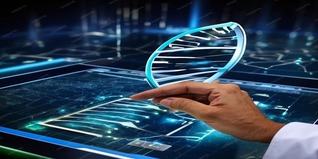
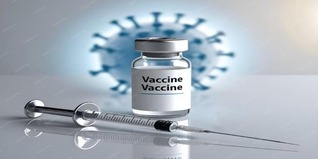
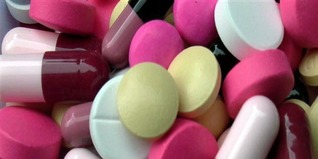
Environmental Biotechnologist 
Dairy industries 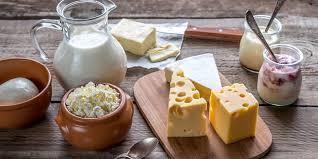

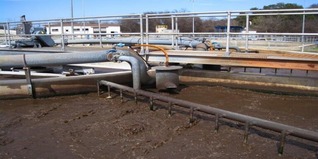

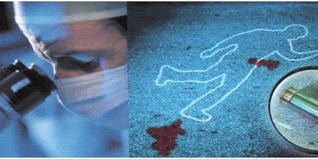

Water industries 

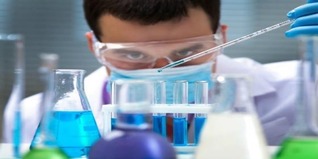
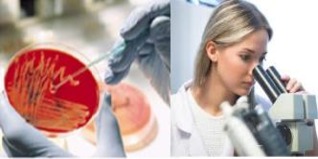

Scheme of Study (Semester Wise)
- Duration: 4 Years
- Semesters: 8
- Credit Hours: 130
1st Year
Semester - Ⅰ
| Course Code | Course Title | Prerequisite | Credit Hours |
| ENG101 | Functional English | – | 2+1 |
| IST101 | Islamic Studies/ Islam & world religions | – | 2+0 |
| MAT101/ BIO101 | Mathematics / Basic biology | – | 3+0 |
| BSC-102 | Biochemistry | – | 2+1 |
| BSC-103 | Chemistry | – | 2+1 |
| MIC-101 | Fundamentals of Microbiology-I | – | 2+1 |
| Total Credit Hours | 17 |
Semester - Ⅱ
| Course Code | Course Title | Prerequisite | Credit Hours |
| ENG102 | Communication/ Writing Skills | – | 2+1 |
| PST101 | Pakistan Studies | – | 2+0 |
| MTH201 | Linear Algebra & Differential Equation | – | 3+0 |
| BSC-105 | Physiology | – | 2+1 |
| PHI101 | Philosophy, Logic and Critical Thinking | – | 3+0 |
| MIC-102 | Fundamentals of Microbiology-II | – | 2+1 |
| Total Credit Hours | 17 |
2nd Year
Semester - Ⅲ
| Course Code | Course Title | Prerequisite | Credit Hours |
| CSC105 | Programming fundamentals | – | 3+1 |
| PSY101 | Psychology | – | 3+0 |
| BSC-210 | Biostatistics | MTH-101 | 2+1 |
| MGT401 | Entrepreneurship | – | 3+0 |
| BSC-207 | Cellular Metabolism & Regulation | BSC-102 | 2+1 |
| MIC-202 | Community Service | – | 0+2 |
| Total Credit Hours | 18 |
Semester - Ⅳ
| Course Code | Course Title | Prerequisite | Credit Hours |
| MIC-203 | Medical Microbiology | MIC-101 | 2+1 |
| MIC-204 | Fundamentals of Immunology | – | 2+1 |
| MIC-205 | Introduction to metagenomics | – | 3+0 |
| MIC-206 | Microbial Taxonomy | – | 2+1 |
| MIC-207 | Introduction to Biotechnology | MIC-101 | 2+1 |
| MIC-208 | Bacterial Genetics | MIC-101 | 2+1 |
| Total Credit Hours | 18 |
3rd Year
Semester - Ⅴ
| Course Code | Course Title | Prerequisite | Credit Hours |
| BSC-301 | Bioinformatics | MTH-101, 201, CSC105 | 2+1 |
| MIC-301 | General virology | MIC-101 | 2+1 |
| MIC-302 | Soil & Marine Microbiology | MIC-102 | 2+1 |
| MIC-303 | Biosafety & Biosecurity | MIC-101 | 2+1 |
| MIC-304 | Antimicrobial Agents | MIC-101, 203 | 2+1 |
| Total Credit Hours | 15 |
Semester – Ⅵ
| Course Code | Course Title | Prerequisite | Credit Hours |
| MIC-305 | Epidemiology & Public Health | MIC-101, 102, 201 | 2+1 |
| MIC-306 | Food and Dairy Microbiology | MIC-101, 102 | 2+1 |
| MIC-307 | Introduction to Parasitology | MIC-101 | 2+1 |
| MIC-308 | Genetic Engineering and Its Applications | MIC-101, BSC-207 | 2+1 |
| MIC-309 | Introduction to Mycology | – | 2+1 |
| Total Credit Hours | 15 |
4th Year
Semester - Ⅶ
| Course Code | Course Title | Prerequisite | Credit Hours |
| ENG401 | Technical report writing | ENG-101 | 3+0 |
| MIC-401 | Cell and Tissue culture | MIC-101, 301 | 3+0 |
| MIC-411 | FPY-I | MIC-101, 102 | 0+3 |
| XXXxxx* | Elective I | – | 3+0 |
| XXXxxx* | Elective II | – | 3+0 |
| Total Credit Hours | 15 |
Semester – Ⅷ
| Course Code | Course Title | Prerequisite | Credit Hours |
| XXXxxx* | Elective III | – | 3 |
| XXXxxx* | Elective IV | – | 3 |
| MIC-402 | Recent Advances in Microbiology | – | 3 |
| MIC-412 | FPY-II | FYP-I | 0+3 |
| MIC-413 | Field Experience/Internship | – | 0+3 |
| Total Credit Hours | 15 |
